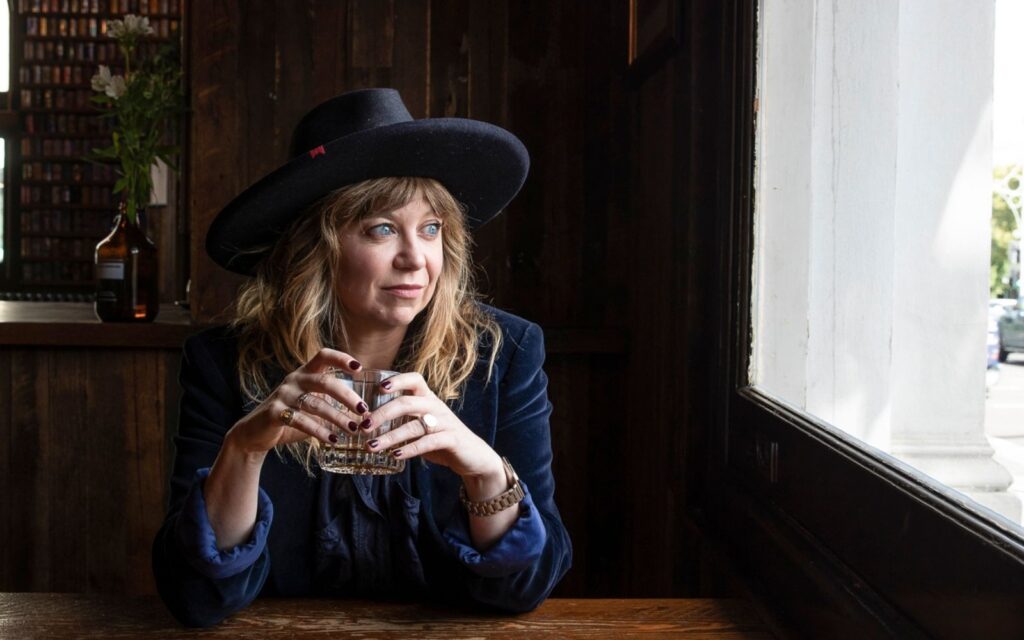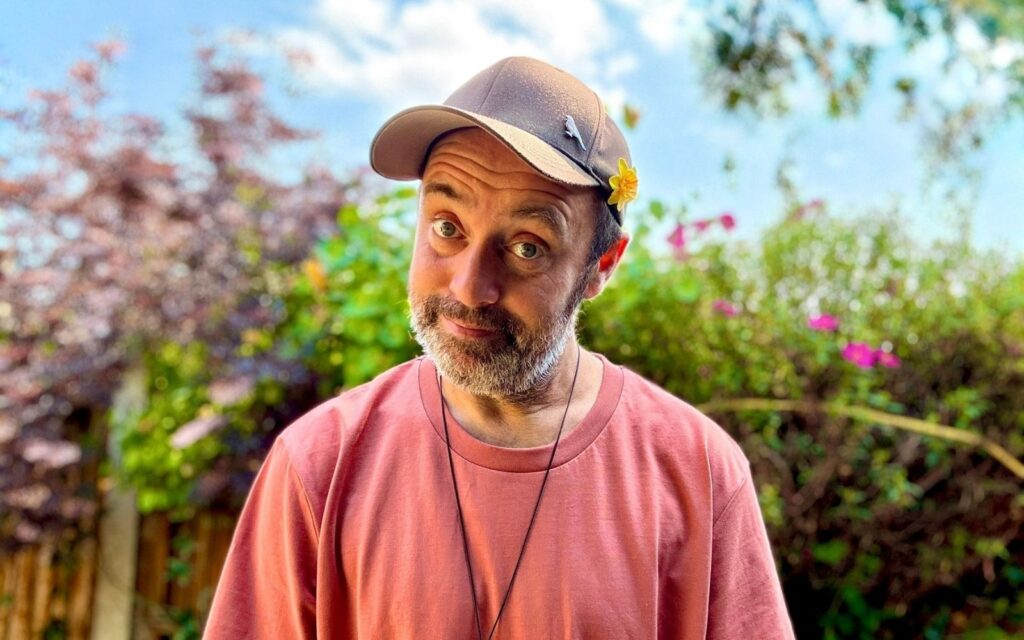As the title of Angie McMahon’s new album suggests, the four years between releasing her brilliant debut Salt and Light, Dark, Light Again were not always easy.
“My inner critic and perfectionist wanted it to be done and released probably 12 months after the first one, but that was not the path the universe had set out for me,” says the Melbourne singer-songwriter. “I had to go through some hard shit to be able to write the songs that I’m now really happy I was able to write, but that all just took time.”
The slower approach to making the record helped shape it. “It was not my ideal timeline, and that is kind of beautiful in itself because a lot of what I’m writing about is the practice of failing and then restoring yourself and still feeling okay,” says McMahon. “The story of that is in the record and about the record.”
Keep up with the latest music news, features, festivals, interviews and reviews here.
While the intimacy of McMahon’s first record can be felt on Light, Dark, Light Again, it has a richer and fuller sound. “I think on the first record I was really afraid of making something that wasn’t true to me, so I wanted to keep it quite simple,” she explains. “On this one, I felt a little bit more confident in who I am and what my vision was, so that meant that there was space to go deeper and bigger.”
McMahon also employs more vocal effects on the new record, distorting it heavily at times. “It was fun to be able to use the voice as an instrument, and not feel like I was restricted by it so much,” she says. “I was excited to make something with more complexity production-wise, and sonically I wanted it to feel cinematic, [with] a full spectrum of intimacy and also intense cosmic punches to the gut.”
The lyrical themes of McMahon’s songs have also shifted as she’s matured. “I look back on a version of myself five years ago, who was probably writing more about, and to, other people without the communication skills or maturity to be able to express myself,” she explains. “I found with this [record] that when I was writing about other people, it felt less like a 19-year-old being like, ‘you’ve wronged me’ [or] ‘how dare you make my heart hurt,’ and… a lot more about restoring compassion to the way that I communicate with myself.”
The deeply personal music on Light, Dark, Light Again portrays a time of personal growth for McMahon. “I discovered a lot about myself and my brain neurotype and sexuality, and the different relationships that shifted within those discoveries,” she explains. “I had some things that I was really afraid of going towards that I had to go into.”
A bout of glandular fever deteriorated not only her physical but mental health. “I got really sick… and I was really, really depressed at the time [and] experiencing really high anxiety and panic attacks,” she says. “Emotionally I was at rock bottom, spiritually I was finding myself, but it was in the process of being at rock bottom.”
Fortunately, McMahon was able to work through many of the challenges. “That is where a lot of my current perspective on life, or my approach to life, came from, which is more calm and accepting than it used to be, still [with] plenty of anxiety,” she says.
The album was partly recorded in Melbourne with producers Alex O’Gorman and Bonnie Knight, and across The Pacific in Durham, North Carolina with producer Brad Cook. They were tasked with translating McMahon’s home recordings to the studio. “Some of the songs I was writing as demos in lockdown when I was deep in a bedroom world, and I was trying to create big stuff,” she says. “Luckily the people who worked on the record were very open to that.”
It was the production on Waxahatchee’s Saint Cloud that especially drew McMahon to Cook, on a resume that includes Bon Iver, The War on Drugs, and Snail Mail. “I really wanted to learn a lot along the way, and that meant that I was challenged with how perfect we could make things because I was learning as we went,” says McMahon. “Part of my learning is that perfection is not meant to be the goal.”
“Brad was really encouraging in terms of helping me co-produce the record,” says McMahon. “He really helped build my confidence and encouraged me to experiment, and whatever ideas I would put forward he’d be like, ‘Yeah, let’s do that.’ He was very open and that was liberating.”
As therapeutic as writing the record has been for McMahon, she cannot wait to perform it live. “It’s such a big release,” she explains. “Not having it as a regular thing in my life has meant that I’ve had to learn other tools to release things from my body, which has also been healthy… but it feels like, for me, the most natural way to let go of stuff.”
McMahon has written an album to help her heal, which will undoubtedly go on to help heal others. “When I was writing the songs, I was really wanting to generate good energy for myself,” she says. “But also knowing that at some point I was going to play them live and hopefully that would generate a room full of good energy.”
Angie McMahon is playing Northcote Theatre on September 28. View all tour dates here.







